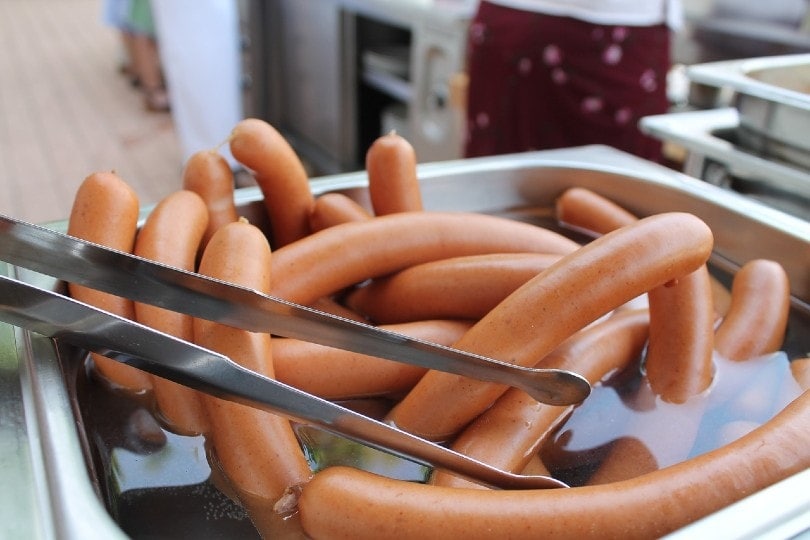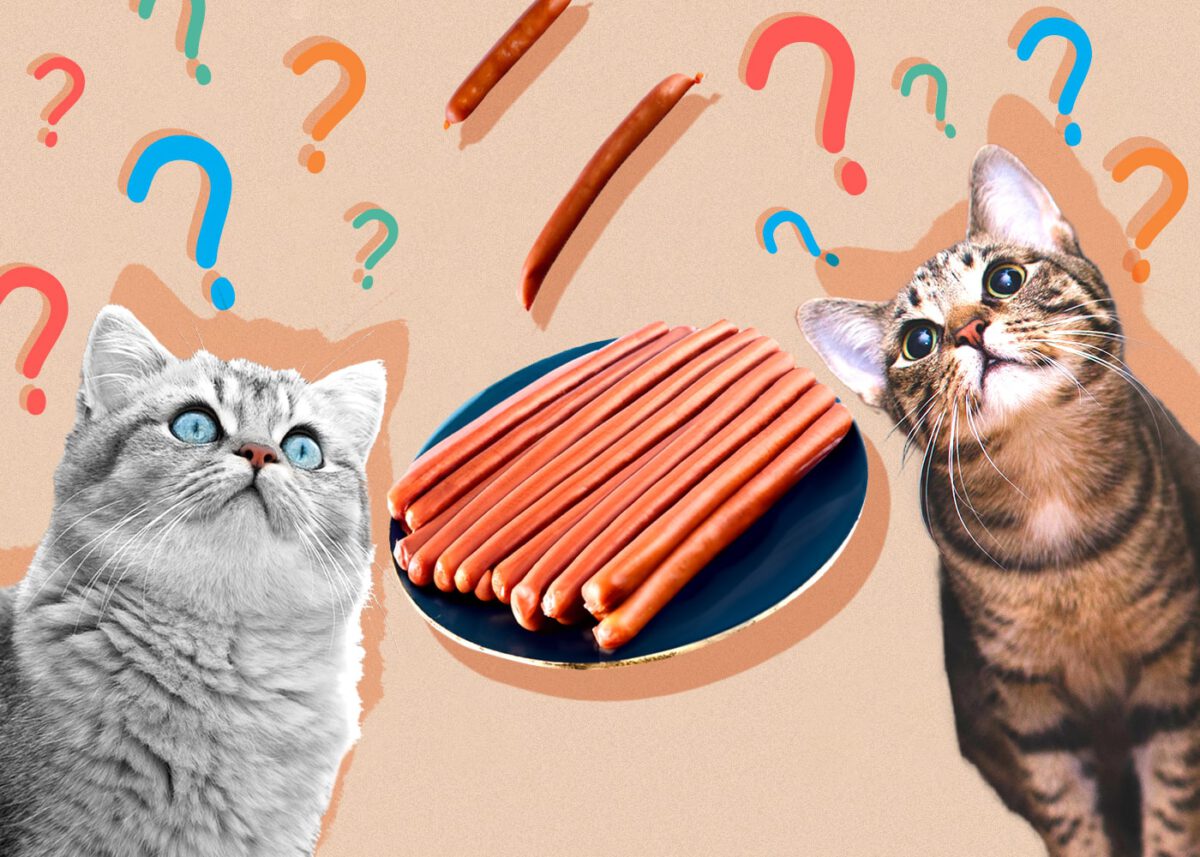Unlike most dogs, cats are not known to be greedy little gluttons. However, their pleading little eyes and incessant meowing make us want to share our meal with them. Although human food is generally not an optimal option for our pet felines, some foods can be given as occasional treats.
So, what about Vienna sausages? While an occasional little bite won’t cause any problems for your kitty, we don’t recommend feeding Vienna sausages to your cat. Sausages are not the best source of protein for cats since they are mostly made from processed meat. In addition, they contain an unappealing ingredient list for the health of our little felines.
Let’s look closer at these ingredients, why they shouldn’t be part of your cat’s diet, and what other options you can offer instead of Vienna sausages.
What’s in Vienna Sausages?
Vienna sausages, also known as wieners in Europe, are usually made from a mixture of pork, beef, or chicken, stuffed in a thin casing, and sold in cans. Like all cold cuts, Vienna sausages contain a lot of fat, sodium, sugar, additives, and preservatives. Thus, these are highly processed foods that should only be eaten occasionally.

Image Credit: rkpalmin, Pixabay
Are Vienna Sausages Harmful to Cats?
Although they have little to offer from a nutritional standpoint, Vienna sausages are not considered toxic foods for cats. However, their high sodium concentration can lead to gastrointestinal problems, such as vomiting, diarrhea, excessive thirst, lethargy, and loss of appetite.
Although some studies have shown that a diet up to three times higher in sodium has little effect on kidney function, blood pressure, or cardiac function in older cats, the fact remains that sausages are high in calories, additives, and preservatives. On the one hand, too many calories can lead to obesity, which is bad for the cat and leads to all kinds of health problems.
Also, the additives and preservatives contained in sausages can lead, when ingested in large quantities, to a deficiency in vitamin B1, also called thiamine. Thiamine deficiency results in severe reactions, many of which are neurological in origin.
What Does a Cat Need to Be Healthy?
According to the Association of American Feed Control Officials (AAFCO), an adult cat needs specific nutrient requirements to maintain optimal health:
- Protein
- Fatty acids
- Carbohydrates
- Vitamins
- Minerals
- Water
The best way for your cat to get all these nutrients is through high-quality kibble. So, by providing your cat with a balanced and complete diet, you shouldn’t need to supplement their diet with treats. However, occasionally, you can offer your pet healthier options than leftovers.
What’s a Better Alternative to Vienna Sausage?
As a rule of thumb, a maximum of 10% of your cat’s daily calories should come from treats. Homemade treats such as fresh meat or fish should be well cooked, with no added salt, and served with the bones and skin removed. For specially formulated commercial cat treats, read the feeding guide on the package to learn how to feed them and how often.
Note that if your cat is on a special diet recommended by your veterinarian for weight loss or another medical problem, treats may be strongly discouraged. Instead, ask your vet what you can and cannot give to be on the safe side.
Ultimately, you should try to avoid feeding your cat human food. As mentioned by Dr. Nicole Silva of PetMD, any food not specifically formulated for cats can affect the digestive system, causing vomiting, diarrhea, or loss of appetite.
Now that you know what you can safely feed your cat, it’s just as important to find a bowl that supports their health and well-being. With whisker-friendly bowls and a wide tray to catch any spills, our Hepper NomNom Cat Bowl is our favorite option.
Frequently Asked Questions
Coming soon…
Conclusion
It is tempting to serve your cat table scraps, especially if the kitty purrs with pleasure while devouring the piece of Vienna sausage that you just gave them! However, it is too high in calories, sodium, and other additives and is sorely lacking in essential nutrients needed for optimal nutrition. Thus, feeding highly processed foods to your cat can upset the balance of their diet. Instead, serve commercial treats that you can get from your veterinarian or pet stores.
See also:
- Can Cats Eat Rotisserie Chicken? Vet-Approved Facts & FAQ
- Can Cats Eat Chicken Nuggets? Vet Approved Facts & FAQ
Featured Image Credit: Bildagentur Zoonar GmbH, Shutterstock
